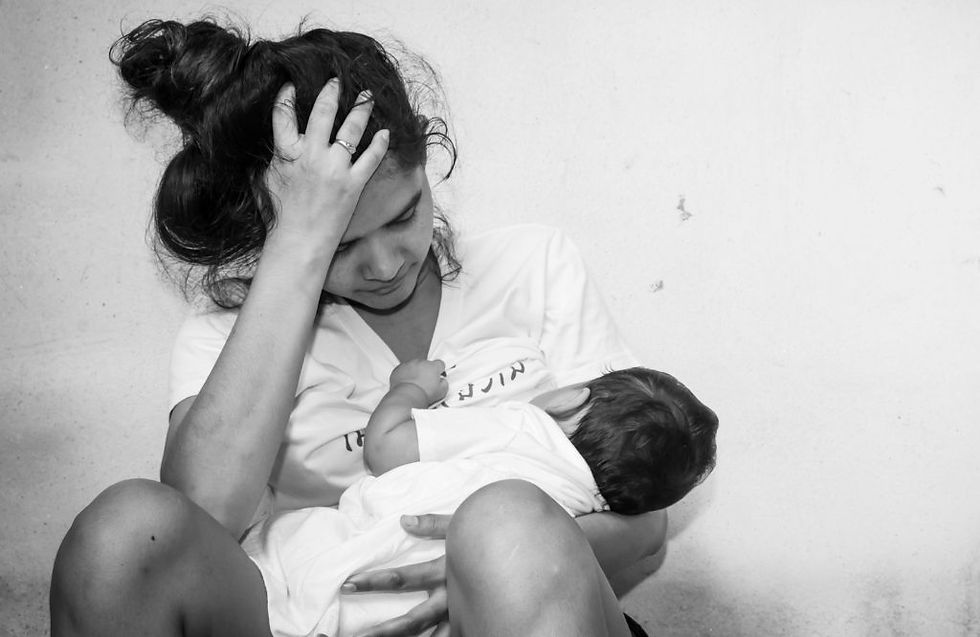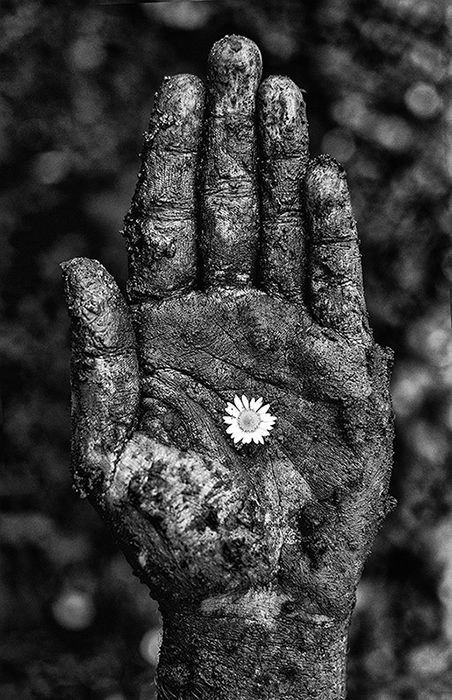The mum she thought she'd be
- Nish Manek

- Feb 15, 2020
- 5 min read
She has no time for a bath, or the shortest of day dreams. Every moment consumed by this new, wriggling creature.
The real world seems distant somehow. She roams in this new half-world, squinting at things that were once familiar through a thick fog of tiredness. Colours are dim. Eyes burn. Everything seems muffled and out of focus. Except the wailing, tiny tangle of limbs by her side.
She didn’t know her own strength until she pushed her out. But overnight she must find more. It doesn’t matter if those wells have not yet refilled. It doesn’t matter if there is a projector beaming in her brain, replaying the most shocking moments she thinks her body will ever endure. The memories hang over her: the hospital petri dish of melodrama, the hot air pungent with emotion and bodily fluids. But she has no choice. It must be forgotten, quickly. There are new scenes to focus on.
She’s not the mother she thought she’d be.
This new world is riddled with contradictions. She is lonely, and yet never alone. She relishes the domesticity one moment, and feels stifled by it the next. She indulges in the anarchy of child play, but is paralysed by the weight of new responsibility. She wants someone, anyone, to take this thing away just for a moment. And yet when they do, she suddenly aches and must sit on her hands to stop herself snatching her back.
She knows she has changed in unrecognisable ways, a permanent rearrangement of every molecule. And yet she also knows that she is nothing special. So many have been here before. But they didn’t say it would be like this.
She’s not the mother she thought she’d be.
Her heart almost breaks open with this new, aching love for the little thing that will call her mum one day. She has never known anything like it. There are deliciously moreish moments where time slows down, and she feels nothing will satisfy her again in the same way. And yet a part of her mourns her former self. The future suddenly seems mapped out, boxed by feeds, nappy changes, and developmental milestones.
The subservience and sacrifice is permanent. But it’s what she wanted since she was a little girl playing mummy in the playground. She is meant to love this new life unconditionally, every moment of every day.
She tries to shower with the door open. She goes to the toilet and immediately hears screams. Meals are snatched with one hand and a running commentary. Her own needs surface and jostle with her baby’s, triggering a river of guilt and inadequacy. Is it too much to ask? Will it always be this hard?
She’s not the mother she thought she’d be.

Time is devoured, days slip by. They stumble through together. So many moments spent simply staring the newborn. A hundred expressions cross her little face in a minute. She wants to be a mother who is calm and in control. But how can she be? This new little life is in her hands. Hands that fumble and clench and wring together. Is she breathing? Is she too cold? Too hot? Hungry? Tired? And again, and again...am I good enough?
Pregnancy opened a Pandora’s box of risk. Time was segmented into danger zones. She was consumed with thinking if they could just get to the next scan they would be OK, reluctant to invest too much emotionally. When the labour was over she felt lighter. But it didn’t last. One threat was simply replaced with another. And she realises that will never end.
Labour brought her closer to thoughts of her own mortality than ever before. Now she cannot see past the fragile mortality of this thing before her. She becomes preoccupied with the threat of sudden infant death. Sometimes she looks at the defenceless body in its cot and fear forms a ball in her throat.
Advice floods in from all sides. It contradicts herself and each other and leaves her more unsure than before. Friends without children simply nod sympathetically. There is an unspeakable distance hanging in the air. They seem like characters from a different era now.
She worries when her newborn cries, she worries when she doesn’t. She worries when she cannot sleep, she worries when she doesn’t wake up. She worries when she doesn’t feed, she worries when she feeds too much. She craves silence, but when it goes on too long she yearns for those squeaks of her newborn stirring, like a balloon deflating.
She’s not the mother she thought she’d be.
Every cry feels accusatory, and triggers a rising shame of her inability to console her. She paces the floor with a knotted stomach and sweaty palms, shushing her ceaselessly and praying she will be shown a fix. She scans for patterns, desperate to understand. But there is no pattern. It’s a phase, they keep telling her. It’s all a phase.
She hungers for sleep, but when she finally has a chance her mind races with scenes of her day. Huge concentric circles of emotion envelop her. She has to stare for several minutes at the little tummy rising and falling next to her before she can turn off.
It is short-lived.
Shrill cries pierce her sleep, signalling another feed. It feels like she’s only been asleep for minutes. As the nights wear on it gets harder. She lies there, flattened like a boxer struggling to rise during the count. And is immediately swamped by a wave of guilt for letting the hunger continue.
A part of her dreads the night feeds. She longs for the bustle of the day to break the silence. But another part of her cherishes the stretches of solitude, staring down at this little thing they have made and watching her eyelashes grow in the dark. She sits there considering the sheer beauty and fragility of life, and she cannot breathe.
She’s not the mother she thought she’d be.
The umbilical cord was cut long ago. And yet she still doesn’t know where she ends and baby begins. Permanently porous boundaries, a sense of self has long disappeared.
But she knows the truth. Her little one has already started to drift away. It will be subtle at first. She will soon be able to see beyond her mother’s face, and work out where her little fingers end and her mother’s begin. Each new milestone will mark another severing of that bond. For now, they are learning how to be one unit. But she must also learn to cope with its inevitable dissolution. She will fill her to the brim with love, and one day let her go.
In time, she realises that the mother she thought she’d be was never possible. It was a figment of her imagination. The truth is, she could never have known it would be like this. No one ever does.
She is the mother that only she can be. And it is enough. It is enough.



Comments